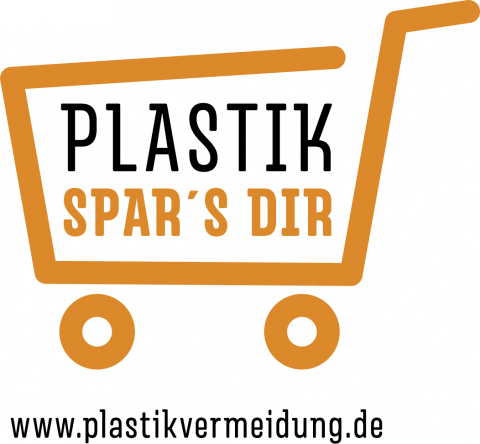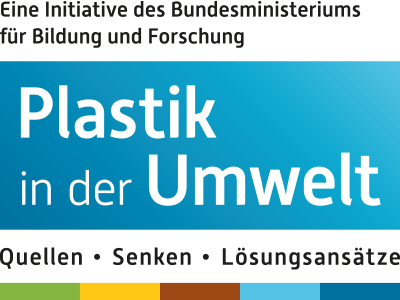VerPlaPoS
VerPlaPoS

Dr. Thomas Decker
Stadt Straubing
Theresienplatz 2
94315 Straubing
Phone: +49 9421 944-60167
e-mail: thomas.decker@straubing.de
Consumers buying products made of or wrapped in plastic play a decisive role in plastic consumption in Germany. A complete avoidance of plastic in everyday life, while unlikely to occur in full, would only be possible with extremely high restrictions. Moreover, many consumers are not aware of how much plastic is put into circulation or into the environment by buying a product. The consumer can, however, influence the use of plastics with targeted product selection at the point of sale (PoS) (e.g. the choice of plastic-free products).
Against this background, this project investigated to what extent the consumer can avoid the generation of plastic waste by making a purchase decision at the PoS. Another aspect was to what extent help can be provided for this decision, e.g. through different avoidance strategies. This was examined using food packaging and clothing textiles as examples. The former was chosen because food packaging has the highest capital costs for the environment in absolute terms (UNEP 2014). Textiles were chosen because they are made of plastic, a high proportion of synthetic fibres is used and a lot of plastic is produced by packaging the textiles.
Main areas of work
- Investigating the understanding and behaviour of consumers when buying (or co-acquiring) plastics
- Identification of plastic avoidance strategies along the textile and food supply chains
- Holistic evaluation of different plastic alternatives (life cycle assessment)
- Development of new products/processes that help to reduce plastic consumption/use
- Information on product-specific plastic consumption using a plastic app
WP 1 Project coordination and project management
Contact person
Dr. Thomas Decker, Stadt Straubing, Theresienplatz 2, 94315 Straubing, e-mail: thomas.decker@straubing.de
Project partners
Weihenstephan-Triesdorf University of Applied Sciences, General and Textile Industry Research Institute, University of Muenster, Fraunhofer Institute for Process Engineering and Packaging, University of Stuttgart, Philipps-University Marburg, Ludwig Stocker Hofpfisterei GmbH
Short description
The City of Straubing coordinated the consortium in the supervisory WP 1. This included the coordination of content, operations (link between science and SMEs) and organisation (project meetings, telecons, reports, timetable, etc.). In addition, the City of Straubing was responsible for public relations (reciprocal and interactive communication with stakeholder groups in the study region and in Germany, presswork, Internet media, etc.).
WP 2 Consumer purchasing behavior when buying plastic articles
Contact person
Prof. Dr. Klaus Menrad, Weihenstephan-Triesdorf University of Applied Sciences, Department of Marketing and Management of Renewable Resources, Petersgasse 18, 94315 Straubing, e-mail: klaus.menrad@hswt.de
Project partners
Stadt Straubing, Ludwig Stocker Hofpfisterei GmbH
Short description
The behaviour of customers in the shops of partners in the City of Straubing was assessed in regard to food packaging and clothing textiles, with particular attention paid to plastic. The aim was, on the one hand, to capture the open, observable shopping behaviour of consumers with its connected plastic consumption. On the other hand, the knowledge and problem awareness in plastic matters were determined. Furthermore, common themes were also examined when purchasing plastic-packed food or textiles.
WP 3 What role does plastic play in commerce?
Contact person
Dr. Thomas Decker, Stadt Straubing, Theresienplatz 2, 94315 Straubing, e-mail: thomas.decker@straubing.de
Project partners
Weihenstephan-Triesdorf University of Applied Sciences, Ludwig Stocker Hofpfisterei GmbH
Short description
The respective offer at the PoS was very important for consumers' purchasing decisions. For this reason, the assortment of practical partners in the food and textile commerce as well as the disposal routes of plastic waste produced in shops were being investigated. This provided a business level overview of the respective volume of plastic. The selected shops were examples of different types of food retailing and textile merchandise management.
WP 4 Plastics along the value chain
Contact person
Sven Sängerlaub, Fraunhofer Institute for Process Engineering and Packaging, Giggenhauser Straße 35, 85354 Freising, e-mail: sven.saengerlaub@ivv.fraunhofer.de
Short description
The aim of this work package was to obtain a general overview of the occurrence and use of plastics (especially intermediate packaging) in the supply chains for textiles, with a focus on functional textiles and men’s fashion, and foodstuffs. The aim was to investigate the areas in which the use of plastic is necessary and where it could be reduced or avoided. Thus, there were various possibilities within the value chains to reduce or avoid the use of plastics, e.g. by optimizing the transport packaging systems between the individual stations.
WP 5 Development and provision of alternative packaging options
Contact person
Sven Sängerlaub, Fraunhofer Institute for Process Engineering and Packaging, Giggenhauser Straße 35, 85354 Freising, e-mail:sven.saengerlaub@ivv.fraunhofer.de
Project partners
Stadt Straubing, University of Stuttgart, Ludwig Stocker Hofpfisterei GmbH
Short description
For the practical testing of alternative packaging and communication with retailers and end customers, suitable materials were being developed, samples produced and appropriate specifications drawn up for incoming and outgoing processes for manufacture and recycling. Various packaging alternatives for the food sector were then manufactured at IVV on a pilot-plant scale for pilot applications or produced by industrial partners. These patterns represented different approaches to avoid or reduce the use of plastics.
WP 6 Avoidance of plastic along the entire textile supply chain
Contact person
Prof. Dr. Gerhard Schewe, University of Münster, Chair of Business Administration, Universitätsstraße 14–16, 48143 Münster, e-mail: orga@wiwi.uni-muenster.de
Project partners
Stadt Straubing, University of Stuttgart
Short description
Within the scope of a business case, innovative strategies were developed for analysing the entire textile supply chain regarding avoidable plastic use, together with practice partners from the textile industry. First the object of investigation was defined and delineated to provide a specification sheet for the analysis of the actual state, for the formulation of the target state under consideration of cost positions, for monetary advantages, and non-monetary aspects, and for functional, and nonfunctional requirements.
WP 7 Innovative recycling strategies for the textile sector
Contact person
Prof. Dr. Gerhard Schewe, University of Münster, Chair of Business Administration, Universitätsstraße 14–16, 48143 Münster, e-mail: orga@wiwi.uni-muenster.de
Project partners
Stadt Straubing, University of Stuttgart
Short description
For the unavoidable use of plastics in the textile supply chain, sustainable recycling strategies were developed in a business case in cooperation with practice partners from the textile commerce who see plastics as a promising resource for innovative manufacturing and production processes (for the areas of men’s fashion and functional textiles). The focus was on additive manufacturing processes (colloquially: 3D printing) that offer innovative recycling solutions across divisions and industries thus forming a link to the research area of food packaging.
WP 8 Context-specific life cycle analysis of the product examples
Contact person
Dr.-Ing. Stefan Albrecht, University of Stuttgart, Faculty 2: Civil and Environmental Engineering, Institute for Acoustics and Building Physics (IABP), Department of Life Cycle Engineering, Wankelstraße 5, 70563 Stuttgart, e-mail: gabi@iabp.uni-stuttgart.de
Project partners
Stadt Straubing, Weihenstephan-Triesdorf University of Applied Sciences, General and Textile Industry Research Institute, University of Muenster, Fraunhofer Institute for Process Engineering and Packaging, University of Stuttgart, Philipps-University Marburg, Ludwig Stocker Hofpfisterei GmbH
Short description
Which global problems were caused by plastics along their supply chain and how severe are these? This question was answered by means of a context-specific analysis with regard to the entire life cycle of possible product solutions (textile, food) or plastics (e.g. food packaging) and the entire range of problems based on the life cycle assessment method and information from the previous work packages. Various practice partners from the textile and food commerce provided support.
WP 9 Testing "new solutions"
Contact person
Prof. Dr. Klaus Menrad, Weihenstephan-Triesdorf University of Applied Sciences, Department of Marketing and Management of Renewable Resources, Petersgasse 18, 94315 Straubing, e-mail: klaus.menrad@hswt.de
Project partners
Stadt Straubing, General and Textile Industry Research Institute, University of Muenster, Fraunhofer Institute for Process Engineering and Packaging, University of Stuttgart, Philipps-University Marburg, Ludwig Stocker Hofpfisterei GmbH
Short description
The newly developed products/solutions of WP 5 and 6 were verified for consumer acceptance and tested in the stores of partner companies in the food and textile industry for a period of two weeks. In addition to the sales figures, further consumer reactions were also collected in 300 personal interviews. The developed app (Android and iOS version) was also included in the test and tested for applicability.
WP 10 Elaboration and documentation of practice-oriented recommendations for action
Contact persons
Prof. Dr. Gerhard Schewe, University of Münster, Chair of Business Administration, Universitätsstraße 14–16, 48143 Münster, e-mail: orga@wiwi.uni-muenster.de
Sven Sängerlaub, Fraunhofer Institute for Process Engineering and Packaging, Giggenhauser Straße 35, 85354 Freising, e-mail:sven.saengerlaub@ivv.fraunhofer.de
Prof. Dr. Klaus Menrad, Weihenstephan-Triesdorf University of Applied Sciences, Department of Marketing and Management of Renewable Resources, Petersgasse 18, 94315 Straubing, e-mail: klaus.menrad@hswt.de
Project partners
Stadt Straubing, Philipps-University Marburg, Ludwig Stocker Hofpfisterei GmbH
Short description
Based on the results obtained, recommendations for action were formulated for the industries examined and then summarised into compact documentation. The recommendations for action were derived in close coordination with all partners and on the basis of the strengths and weaknesses, opportunities and risks of the solutions and strategies jointly identified throughout the course of the project. The aim was to achieve a clear impact assessment for the solutions and strategies developed and thus contribute to a reduction in use of plastics on the consumer side.
Case Studies
Several case studies in the areas of food packaging and textiles were conducted within this project. For example, alternative packaging variants were developed for the following areas: service packaging, bowls/trays and bags for baked goods. These packaging alternatives were tested in the course of the project with regard to "quality", ”consumer acceptance” and for improvement of the "plastic index".
In the field of textiles, innovative strategies for the analysis of the entire textile supply chain to identify avoidable use of plastics were established together with practice partners. In addition, sustainable recycling strategies were developed that consider plastics as a promising resource for innovative manufacturing and production processes (for men's fashion and functional textiles). The focus was on additive manufacturing processes (colloquially: 3D printing) that offer innovative recycling solutions across divisions and industries.
